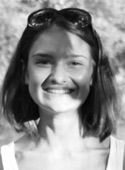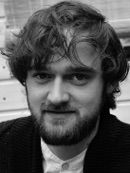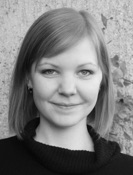To contact the team members, please consult the webpages at the Institute of Philosophy II of Ruhr-Universität Bochum.

Professor of Philosophy, Focus Consciousness and Cognition
Project Leader
Dr Phil Cologne, Germany
Contact: tobias dot schlicht at rub dot de
Tobias is interested in all issues related to the nature and function of our perception of the physical and social world, issues to do with consciousness and subjectivity, and our cognitive functions and their explanation. This also includes more general questions regarding the best explanatory framework for cognitive science.
Selected publications
-
•Schlicht, T., Venter, E. (2019). Getting the world right. Perceptual Accuracy and the role of the Perceiver in Predictive Processing Models Journal of Consciousness Studies 26 (3-4).
-
•Schlicht, T. (2018) Soziale Kognition zur Einführung. Hamburg: Junius.
-
•Schlicht, T. (2018b) Does separating intentionality from representation imply radical enactivism? Frontiers in Psychology 9:1497 doi:10.3389/fpsyg.2018.01497
-
•Schlicht, T. (2017) Experiencing organisms. From Mineness to subject of experience. Philosophical Studies 175(10): 2447-2474. doi:10.1007/s11098-017-0968-4
-
•Schlicht, T., Newen, A. (2015) Kant and Cognitive Science revisited. Logical Analysis and History of Philosophy 18: 87-113.
-
•Schlicht, T. (2018c) Critical note on Hohwy, Menary, Lamb & Chemero, and Froese. In: Oxford Handbook on 4E cognition. Ed. by A. Newen, S. Gallagher, L. de Bruin. Oxford University Press.

MAPhil Edinburgh, Scotland
BA Phil Warsaw, Poland
Contact: krzysztof dot dolega at gmail dot com
Web: krysdolega.xyz
Krzysztof is finishing his dissertation on „Content and Consciousness in Predictive Processing accounts“.
Selected Publications
-
•Dolega, K., Dewhurst, J. (2020) Attending to the illusion of consciousness. Journal of Consciousness Studies
-
•Dolega, K., Dewhurst, J. (2019) Fame in the predictive brain: a deflationary approach to explaining consciousness in the prediction error minimization framework. Synthese
-
•Dolega, K. (2018) Commentary: M-autonomy, in: Frontiers in Psychology 9: 680 https://doi.org/10.3389/fpsyg.2018.00680
-
•Dolega, K. (2016) Moderate Predictive Processing, in: Philosophy and Predictive Processing - Proceedings of the Mind 23 Meeting, Metzinger, T. & Wiese, W. (eds). Cambridge, Mass.: MIT Press. predictive-mind.net
-
•Dolega, K., Dewhurst, J. (2015) Curtain call at the cartesian theatre, in: Journal of consciousness studies 22 (9/10): 109-128.

Postdoctoral Fellow Humboldt-Foundation 2018-2020
DPhil Philosophy Sussex 2017
MSc Edinburgh 2013
BA Belfast 2012
Contact: A dot Downey at sussex dot ac dot uk
Selected Publications
-
•Downey, A. (2019) It Just Doesn’t Feel Right: OCD and the ‘Scaling Up’ Problem. Phenomenology and the Cognitive Sciences
-
•Downey, A. (2018) Split-Brain Syndrome and Extended Perceptual Consciousness. Phenomenology and the Cognitive Sciences 17(4): 787-811.
-
•Downey, A. (2018) Predictive processing and the representation wars: a victory for the eliminativist (via fictionalism). Synthese 195(12): 5115-5139.
-
•Downey, A. (2017) Radical Sensorimotor Enactivism and Predictive Processing: Providing a Conceptual Framework For the Study of Conscious Perception’, in: Philosophy and Predictive Processing - Proceedings of the Mind 23 Meeting, Metzinger, T. & Wiese, W. (eds). Cambridge, Mass.: MIT Press. predictive-mind.net

BA CogSci Osnabrück 2016
Paola works on her MA in Cognitive Science and is supporting the team in all matters of teaching, organization, and research.

DPhil Edinburgh
MA Bochum
Contact: nina dot poth at ed dot ac dot uk
Web: ninapoth.wordpress.com
Nina has just joined the group in spring 2020, armed with a PhD from
the University of Edinburgh. She specializes in Bayesian theories of cognition and she will investigate mental phenomena from this angle.
Selected Publications
-
•Poth, N., Brössel, Peter (2020) Learning Concepts — A Learning
Theoretic Solution to the Complex-First Paradox. Philosophy of Science 87(1): 135-151. -
•Poth, N. (2019) Conceptual Spaces, Generalisation Probabilities and Perceptual Categorisation. In: Kaipainen, Hautamäki, Gärdenfors & Zenker (eds.). Conceptual spaces: Elaborations and applications (pp. 7-28). Dordrecht: Springer.

BA Psychology, Babes-Bolyai University, Cluj-Napoca, Romania
Andreea is writing her MA thesis in Cognitive Science on Multiple Realization and is supporting the team in all matters of teaching, organization, and research.

MA Phil Cologne
Dr. phil. Bochum
Contact: tobias dot starzak at rub dot de
Web:
Tobias has been working on animal cognition and is generally investigating the implications of some enactive accounts regarding the cognitive capacities of simple organisms, e.g. bacteria, plants etc. which are often taken to be non-cognitive biological systems.
Selected Publications
-
•Starzak, T., Newen, A. (2020) How to ascribe beliefs to animals. Mind & Language
-
•Schlicht, T., Starzak, T. (2019) Prospects of of enactive approaches to intentionality and cognition. Synthese DOI 10.1007/s11229-019-02361-z.
-
•Starzak, T. (2016). Interpretations without justification. A general argument against
Morgan´s Canon. Synthese, DOI 10.1007/s11229-016-1013-4. -
•Starzak, T. (2015). Kognition bei Menschen und Tieren. Eine vergleichende philosophische Perspektive. DeGruyter.

MA Phil/CogSci Kwa-Zulu Natal, South Africa
BA Phil Kaw-Zulu Natal, South Africa
Contact: weventer at gmail dot com
Web: elmarieventer.wordpress.com
Elmarie has recently submitted her PhD thesis "Perceiving Agents: Self and Other". In her thesis, she argued for an embodied interpretation of predictive processing and investigated the nature and place of the cognitive agent – the self – and its capacity to perceive itself and other agents within this framework. She is a member of the Bochum-Osnabrück
Research Training Group on Situated Cognition.
Selected publications
-
•Schlicht, T., Venter, E. (2019). Getting the world right. Perceptual Accuracy and the role of the Perceiver in Predictive Processing Models. Journal of Consciousness Studies 26 (3-4).








